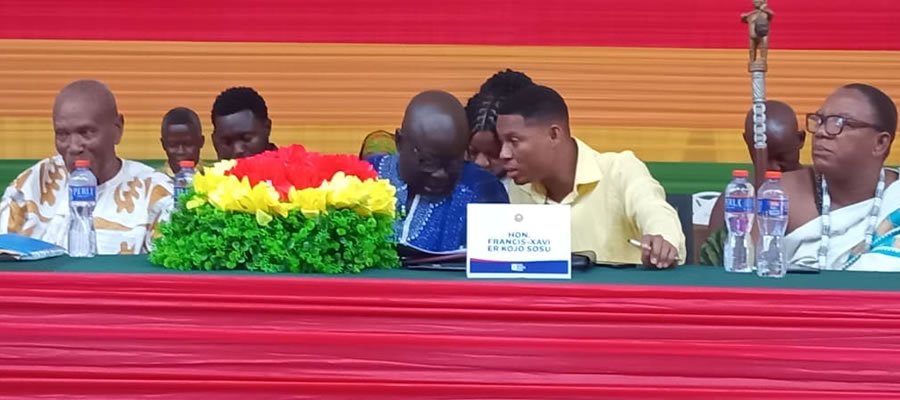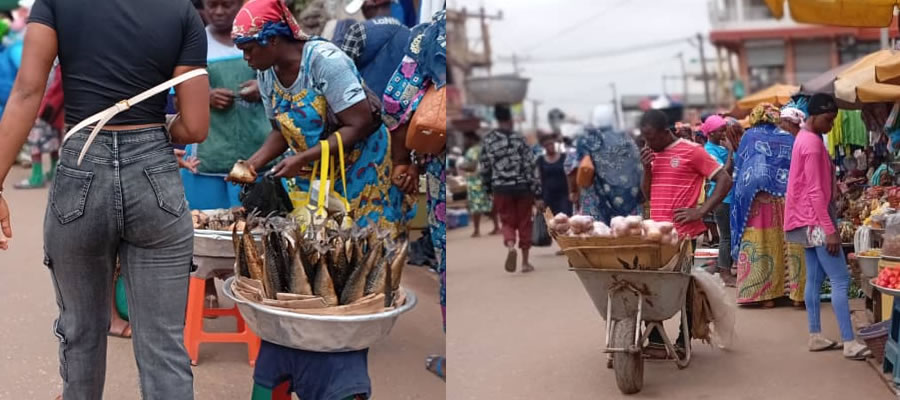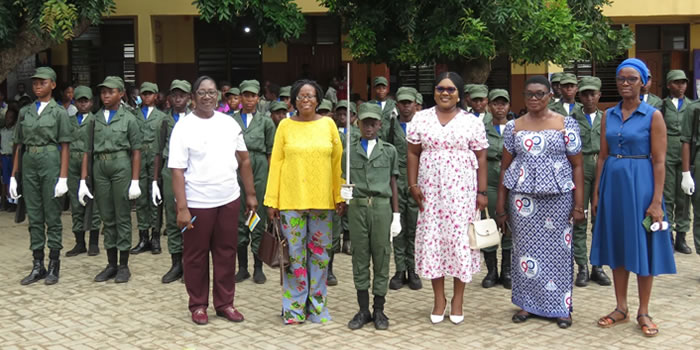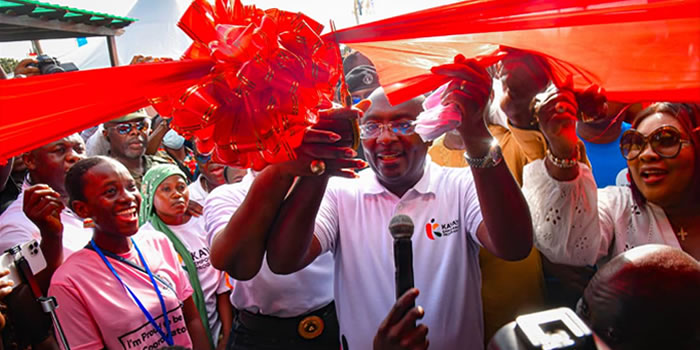

GENERAL
Work to boost local economy - Dan Botwe
The Minister of Local Government, Decentralisation and Rural Development, Dan Botwe, has urged metropolitan, municipal and district assemblies (MMDAs) to deploy strategies that can help boost local economies and improve governance in municipalities, towns and villages across the country

Date Created : 5/6/2022 12:00:00 AM : Story Author : Maclean Kwofi /Ghanadistricts.com
That, he said, would be a significant step towards fully harnessing the economic potential of the MMDAs to create jobs, generate income and reduce poverty. Opening a two-day training for staff of MMDAs in the Greater Accra Region at the Institute of Local Government Studies at Ogbojo in Accra, Mr Botwe insisted that promoting local economic development was part of the key functions of the assemblies under the Local Governance Act 2016 (Act 936).
“As MMDAs, we can implement other provisions in Act 936, such as chasing hawkers, destroying unauthorised properties, and so on, which is good, but our key function and mandate under the law is to ensure local economic development,” he said.
Training
The zonal training focuses on local economic development (LED) and lessons from the Modernising Agriculture in Ghana (MAG) programme. It seeks to train and sensitise the decentralised level actors to the need to promote LED in their various localities, using agriculture as the main tool.It was designed by the Ministry of Local Government, Decentralisation and Rural Development, in partnership with the Ministry of Food and Agriculture and Global Affairs, Canada.
Govt pursue
Mr Botwe noted that the training was timely and necessary because the government continued to pursue policies and initiatives at the national, regional and district levels to create jobs and boost agricultural production and industrial growth. He said the government, with its objective to create jobs, boost agricultural production and industrial growth, increase incomes on a sustainable basis and accelerate social and economic transformation of the country, had initiated several interventions.
The minister explained that the government had identified agriculture as the mainstay of LED and introduced several initiatives, such as Planting for Food and Jobs (PFJ), Rearing for Food and Jobs (RFJ), Planting for Export and Rural Development (PERD), One-District, One-Factory (1D1F) and many others, all geared towards LED.
He said given that actual implementation took place at the district level, it was necessary to enhance the capacity of the structures of MMDAs to enable them to plan and implement interventions through the efficient allocation of resources for the optimum exploitation of their economic and natural resources.
The minister observed that those interventions were expected to translate into increased incomes on a sustainable basis to accelerate Ghana’s socioeconomic development. The Chief Director of MoFA, Robert Patrick Ankobiah, said the training was part of a deliberate and conscious effort made to change and transform agriculture in the country through the various initiatives by the government since 2017.
He said the MAG programme, which commenced in 2017, had made tremendous improvement in shaping the agricultural space by scaling up extension service delivery through the provision of logistics, training and a consistent annual budget support over the last five years. The MAG programme dovetailed into the PFJ, one of the several government flagship programmes. So far, C$122.47 million had been disbursed to all MAG beneficiary institutions.
He said about 266 double-cabin pick-ups had been provided for 260 agricultural departments of the MMDAs, while 16 station wagons and pick-up trucks had been distributed to all regional departments of agriculture, with 3,196 motorbikes being distributed to all agricultural extension agents (AEAs) across the country.
“It also provided 2,305 field uniforms for easy identification of AEAs, as well as support to women farmer-based organisations in post-production activities. Many of these you can all attest to from your various regions and districts and at the national level,” Mr Ankobiah added.
For her part, the Senior Development Officer at the Canadian High Commission in Accra, Candace Holt, noted that after five years of implementation of activities under the MAG, stakeholders had seen excellent results. Through the programme, she said, AEAs reached out to more than five million farmers and supported other agricultural value chain participants on improved techniques, processing, packaging and marketing in 2020.
“But I do want to emphasize that a very central focus of the MAG programme is the contribution of agriculture to inclusive economic development. “At Global Affairs Canada, we use the expression: Growth that Works for Everyone. This is purposefully meant to focus on those with the lowest incomes and those groups who have faced additional barriers to advancing their economic activities,” she added.
-





 facebook
facebook
 X
X
 Youtube
Youtube
 instagram
instagram
 +233 593 831 280
+233 593 831 280 0800 430 430
0800 430 430 GPS: GE-231-4383
GPS: GE-231-4383 info@ghanadistricts.com
info@ghanadistricts.com Box GP1044, Accra, Ghana
Box GP1044, Accra, Ghana